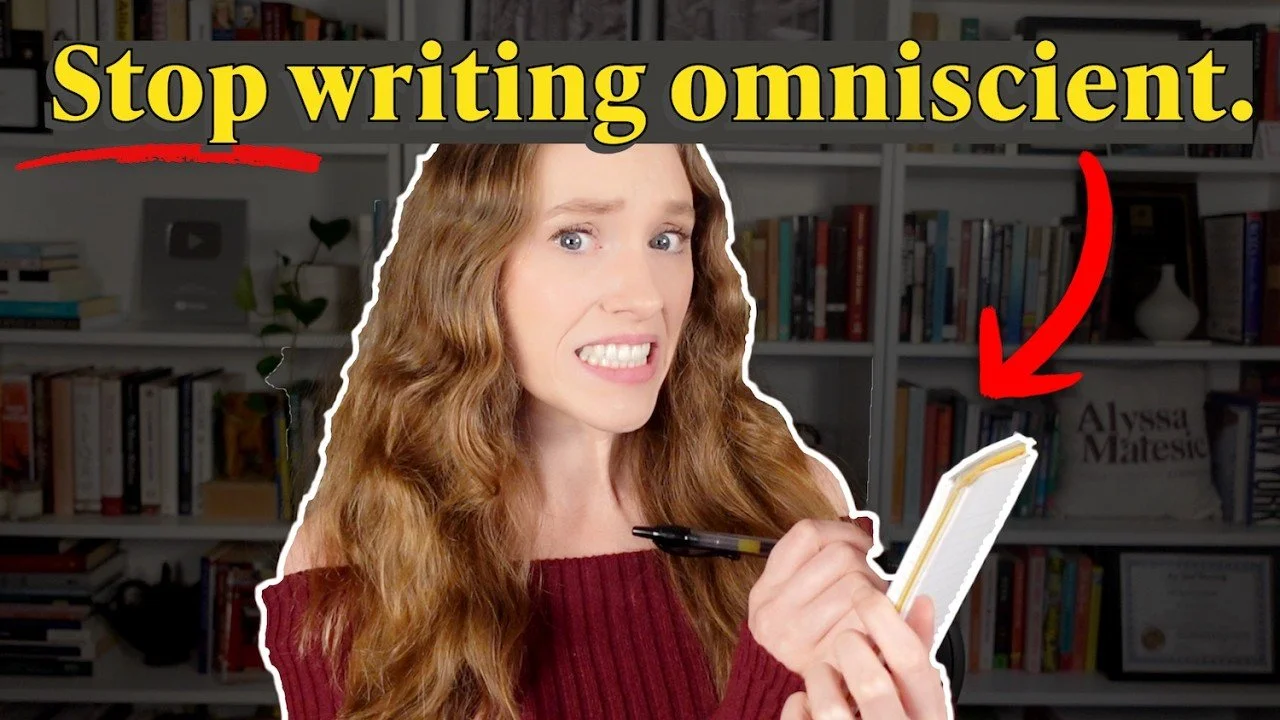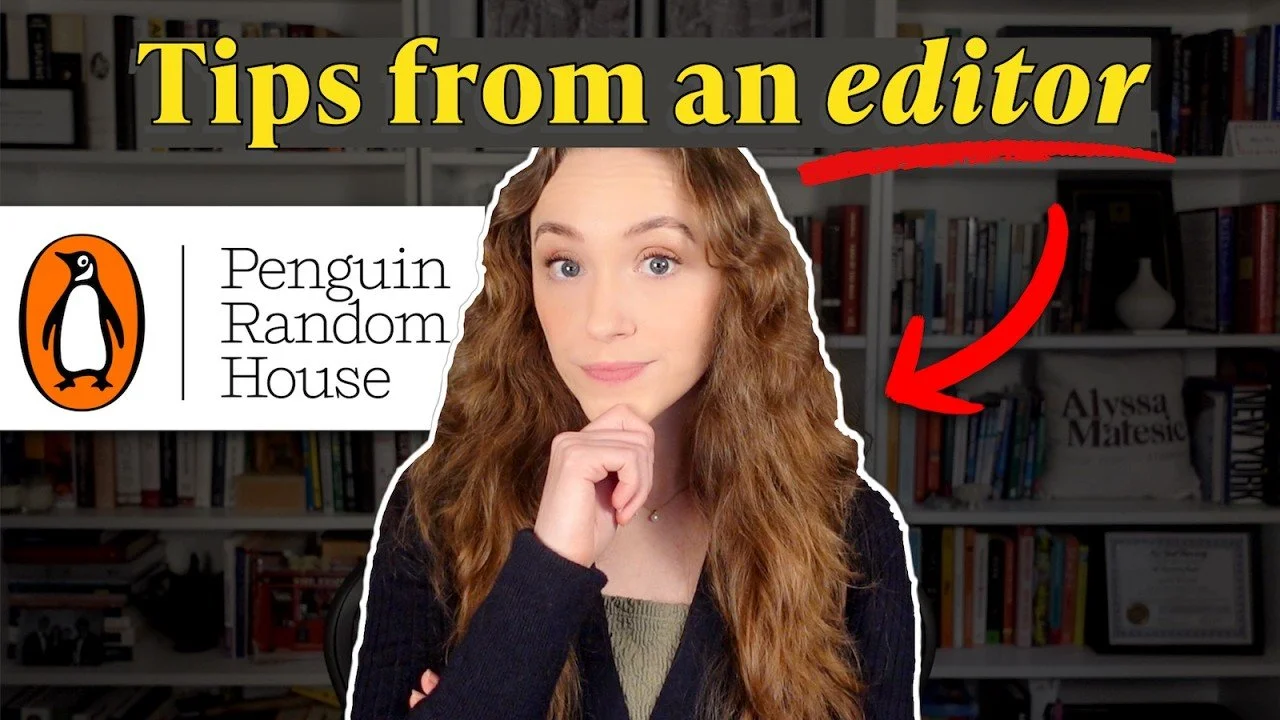Am I a Good Writer? 5 Qualities of a Good Writer that Will Set You Apart
HIT PLAY OR READ THE POST BELOW:
It's a question nearly every writer has, yet very few receive a definitive answer to: Am I a good writer? How can you tell if your writing is good or if you should give up and find a different hobby or passion entirely?
It is, admittedly, nearly impossible to answer this question, because writing is a subjective art and it's not black and white. It's like looking at a painting in a museum and trying to determine if it's beautiful or if it's ugly. You might think it's beautiful; someone else might think it's ugly. It's all a matter of opinion.
That said, there are some signs that you can look for that will help you determine if you're on the right track with your writing. Hopefully, after you go through each of these elements, you'll have a better understanding of where you are with your writing.
1. You Know the Difference Between Writing and Storytelling
At a bare minimum, to be considered a good writer, you have to have a decent grasp of spelling, grammar and sentence construction. You need to be able to convey a thought coherently through a string of words — that's what writing is. But that's a given.
What sets apart a talented writer from a mediocre one is someone who knows that the prose itself — the actual words that you choose and the arrangement that you put them in — is only one part of writing as an art form. You also have to have a clear story that you want to tell, and you need to be able to express that story effectively. Writing allows you to communicate, but storytelling is what allows you to touch and move readers.
So, are you just a writer, or are you a storyteller? Think about that. The best writers are strong in both categories. Not only is their prose well-constructed and thoughtful on a line level, but they have compelling stories to share, and they know how to translate them to the page.
2. You Admire Other Writers
Who are some of your favorite writers? If you can't answer this question, then it's a sign that you should likely spend some more time reading.
One of the very best ways to become a better writer is to read widely and often. Reading and admiring another author's work allows you to recognize what makes a story captivating, engaging, and effective.
Of course, this is not about plagiarizing or copying another author's style or tone, but in any art form, you learn from seeing others do it well, and then you put your own spin on it. No art is created in a vacuum, nor should it be. Become a part of the writing community by reading and engaging with other stories. All of the best writers today — including the authors that you admire — have their own list of authors who inspire them.
3. You Receive Meaningful Feedback on Your Work
This is a really big one. When you show someone your story and you ask them what they thought about it and all they say is, “I liked it” or, “I didn't like it,” that doesn't really tell you very much about your writing ability, and it's possible that this person just didn't engage deeply enough with your story to give you more specific feedback — which is not a good sign.
If you receive a meaningful, specific response, like, “I really liked how you wove in this theme,” or “I didn't like that plot twist because it felt unbelievable,” that's a sign that your writing is good because it sparked a specific response.
Note that even if you receive constructive feedback, like the example I just gave, that doesn't at all mean that you're a bad writer; it's a sign that someone has engaged with your work enough for it to spark an idea of how to make it even stronger. It just means that you have things to work on, which everyone does. The fact that someone was able to point to something specific in your story and then have an opinion about it means you're headed in the right direction! Otherwise, they'd be at a total loss for what to say, which is indicative that your story just isn't engaging them in any way.
In fact, when I'm evaluating my own clients’ manuscripts, it's often the stories that I'm most engaged with that I have the longest critiques for, because I have so many ideas spinning on how to take the story to the next level. It's a good thing!
4. You Consistently Find Ways to Improve Your Craft
If you reread your own story and then immediately have ideas on what you want to do to make it even better, like deepening a character's backstory or reconsidering how a specific dialogue scene plays out, then you're probably a decent writer because so much of writing and developing a story is wrapped up in the revision process. So, if you can self-edit and make improvements to your own story that way, then you are on your way to being a better writer.
Now, there's a fine line between seeing things you want to improve in your manuscript and becoming overly self-critical, which is a hole that I see many authors fall down. You do not want to get to the point that you're so critical of yourself that you are no longer productive and begin to hate your own writing. But ideally, you will be able to read your work and know that there are things that you can improve on.
If you read your work and think it's perfect and there's absolutely nothing to change, particularly if this is a first draft, then that's likely a sign that maybe you're not as good of a writer as you think you are. Some level of self-criticism is healthy because it puts you in the growth mindset. You'll naturally adopt the mentality that there's always more to improve in your story and you can always take it further and elevate it to new heights. You shouldn't be under the impression that the first thing you write down is set in stone and flawless just the way it is. Writing is rewriting, after all.
5. You Value the Practice of Writing
Good writers understand the limitations of the question, “Am I a good writer?” They understand that it's almost the wrong question to be asking in the first place, because remember, you can always become a good writer — even if you're not that good today. You're not born a good writer or not; it's a skill that you develop and improve over time and over practice.
So, if you ever feel discouraged about your writing ability, know that this is not the end of the road; you're only going to get better and better as you dedicate yourself to the craft. Frankly, I recommend not asking if you're a good writer because the answer is not going to help you either way. If someone says, “Yes, you're an amazing writer,” then you don't have a sense of how you can improve. You might feel like you've already reached your potential, which is likely not true.
On the other hand, if they say, “No, you're a terrible writer,” then you're going to feel discouraged and you might feel hopeless that you're never going to get to the point of being a good enough writer to share your story with the world. That's not helpful, either.
So, instead of asking, “Am I a good writer or not?” I recommend asking, “What can I do better? What parts of my writing could be stronger?” That will guarantee that you're not just on your way to being a good writer, but a great one.
I hope this helped you better understand where you're at with your writing ability and helped you reframe the question of Am I a good writer?
Thanks so much for reading and happy writing!






